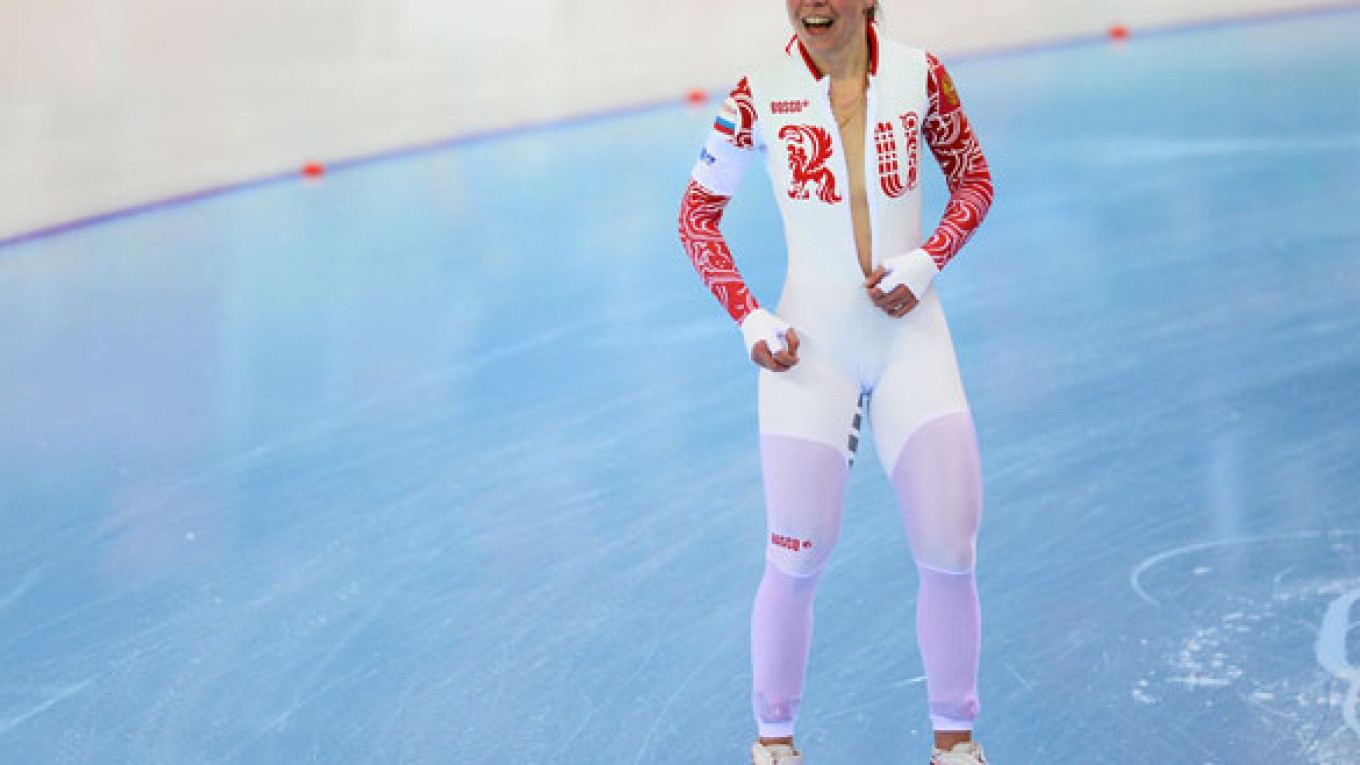For Americans starved for attention, here is one solution: Fly to Sochi, go to an Olympic event, and wrap yourself in an American flag.
Leslie Carol Escobar, an American massage therapist I met there, said she did not even need to be ostentatious about it.
"My cheeks are hurting," she confided to me outside the men's downhill event on Rosa Khutor mountain.
Too much smiling for photos, explained Escobar, who closed her massage studio in Washington, D.C., and flew to Sochi to enjoy the Winter Olympics.
Journalists are agitated to learn that the Russians, while building 24,000 hotel rooms in three years, made athletes' rooms a priority.
"People were just taking thousands of pictures of us, literally," she said. "People lining up to take pictures with us."
Thanks to two years of relentless anti-American propaganda on Russian television, Americans once again enjoy among Russians that delicious status of forbidden fruit, a la 1974. It also doesn't hurt that there is a drought of Americans here.
Sage Kotsenburg, the golden-haired 20-year-old American from Utah, won a gold medal in the men's snowboard slopestyle on Saturday — while his family watched on television in the living room back home in Park City, opting to stay home rather than make the trip.
Not even the U.S. president is coming to Sochi. Potential visitors may have been scared off after U.S. officials warned of possible toothpaste bombs on flights to Russia and Western journalists flooded the Internet with scary reports about falling shower curtains in their hotel rooms.
It is thus no surprise that I have received five queries from female friends, all fishing for sensational horror stories about the state of my hotel room.
The one male query came from Jerry Kobalenko, the Canadian Arctic adventurer in Banff: "Jim, as someone who knows Russia well, you should do a bit on the spoiled Western reporters coming to Sochi and expressing horror because they expected Russia would still offer them their Starbucks or antiseptic bathrooms just like at home."
Sorry, I side with Jerry.
A lot of journalists are agitated to discover that the Russians, while building 24,000 hotel rooms in three years, placed a priority on completing the rooms of athletes over rooms of journalists. I mean, who is more important here, anyhow?
Then there is the German photographer who threw up his hands when he discovered a stray dog snoozing in a half-completed room down the hall. But hey, with "animal control" teams combing Sochi like Cruella de Vil, where would you take refuge if you were a stray dog?
I have a top, 5th-floor room with the most sunshine I have seen since I was in Rio de Janeiro six months ago.
Initially, the elevator sometimes worked, sometimes didn't. But broken elevators don't seem to be a problem for the athletes; at 1,200 meters elevation they were spurning shuttle buses and hiking to the gondola station.
Among the other inconveniences so far, there was a lack of soap, which I later purchased. I could not figure out how to use the Internet television, but the teknik came and taught me. And the water dribbles out of my shower — the san-teknik is working in the bathroom as I write this.
I can only hope that Dmitry Kozak, the deputy prime minister responsible for the Olympics, misspoke when he answered a reporter's question about housing glitches with this disturbing slip-up: "We have surveillance video from the hotels that shows people turn on the shower, direct the nozzle at the wall, and then leave the room for the whole day."
Monitoring our physical movements is something new. We already know that state security is working overtime to monitor our mental movements. It is not enough to buy a ticket to an Olympic event. You have to also apply for a spectator pass; security wants to know who is sitting in each and every seat. Closed-circuit television is omnipresent.
In Sochi, every e-mail, text message and phone call is recorded. Given last week's leak of a crystal clear recording of two U.S. diplomats discussing Ukraine, we kind of suspected that. It still makes Russia an odd place of refuge for Edward Snowden, doyen of the privacy cause.
The good news is that this heightened security probably makes Sochi the safest place in Russia. When I walked into the Olympic Village train station, for instance, I was confronted by the longest row of X-ray machines I have ever seen. Once aboard a train down from the mountains, though, I found the spiffy new "Expres" still had that homey feel of a creaking Moscow elektrichka. A red-faced young man whined to — a presumably irate and female — caller: "No!! I have not been drinking!!"
James Brooke is the Moscow bureau chief of Voice of America.
A Message from The Moscow Times:
Dear readers,
We are facing unprecedented challenges. Russia's Prosecutor General's Office has designated The Moscow Times as an "undesirable" organization, criminalizing our work and putting our staff at risk of prosecution. This follows our earlier unjust labeling as a "foreign agent."
These actions are direct attempts to silence independent journalism in Russia. The authorities claim our work "discredits the decisions of the Russian leadership." We see things differently: we strive to provide accurate, unbiased reporting on Russia.
We, the journalists of The Moscow Times, refuse to be silenced. But to continue our work, we need your help.
Your support, no matter how small, makes a world of difference. If you can, please support us monthly starting from just $2. It's quick to set up, and every contribution makes a significant impact.
By supporting The Moscow Times, you're defending open, independent journalism in the face of repression. Thank you for standing with us.
Remind me later.






